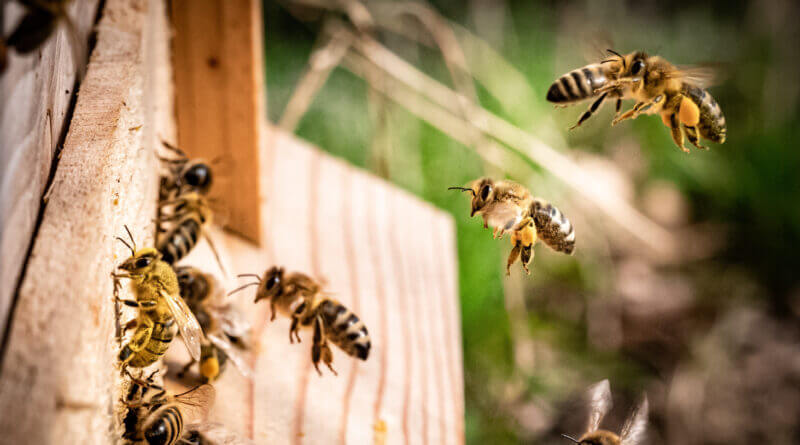Lynn Jones: Pleasant but painful things
By Lynn Jones
Robbing a bee tree is the only kind of robbery in which I have ever participated. Since I was young at the time, I primarily participated by eating the spoils of the robbery.
When I was growing up in Plainview, Louisiana, my dad and my uncle Lewis Cole found a hollow tree in which honey bees had built their hive. My dad and uncle watched the tree for a while, and then set a day for our two families to meet and rob the hive.

My dad and my uncle, along with the older boys in the family, went prepared. They carried saws with which to cut down the tree. They had smoldering burners that put out a lot of smoke to calm the bees. And, just in case some of the bees did not remain calm, they wore a lot of protective gear.
Everything went according to plan. As we watched from a distance, they cut down the hollow tree, chopped open the side of the tree where the hive was located, and then began scooping out parts of the honeycomb and big amounts of honey. When they had a big bucket full, they brought it to us.
My cousin Lavell, who was about my age, and I began eating the spoils of the theft. Our moms gave us pieces of the honeycomb, and we ate the sweet honey right from the comb. All went well until Lavell let out a yell and called his mother for help. In the piece of honeycomb that he had been given, there was a small honeybee. The bee wasn’t old enough to fly away, but it was old enough to sting. It had inflicted a painful sting on the inside of Lavell’s bottom lip. His lip swelled, his yelling disturbed the celebration, and his painful experience put a temporary end to our honey-eating.
It is a sad fact that often the things that attract us most are followed by the most painful experiences. In fact, that is the general pattern of sin. Satan has a way of emphasizing the attraction of sin and hiding the pain involved.
In the Sermon on the Mount, Jesus warned about the road that you choose in life. He said that one of the roads is broad and easy to walk. The problem is that it ends in destruction. You can’t be fooled by how pleasant it may be to begin walking on that pathway. You must look to the end to see where it will lead. God’s way is just the opposite. At its beginning it requires discipline and dedication, but it leads to life.
William Secker said, “There are some things which are pleasant, but not good. These bees carry honey in their mouths, but they have a sting in their tails.” I first learned that lesson at a bee tree near my home in Louisiana.
Lynn Jones is a retired pastor who lives in Oxford. He does supply preaching for churches in his area and often serves as an interim pastor. Jones is also an author, has written two books and writes a weekly newspaper column. He may be contacted at: kljones45@yahoo.com.






